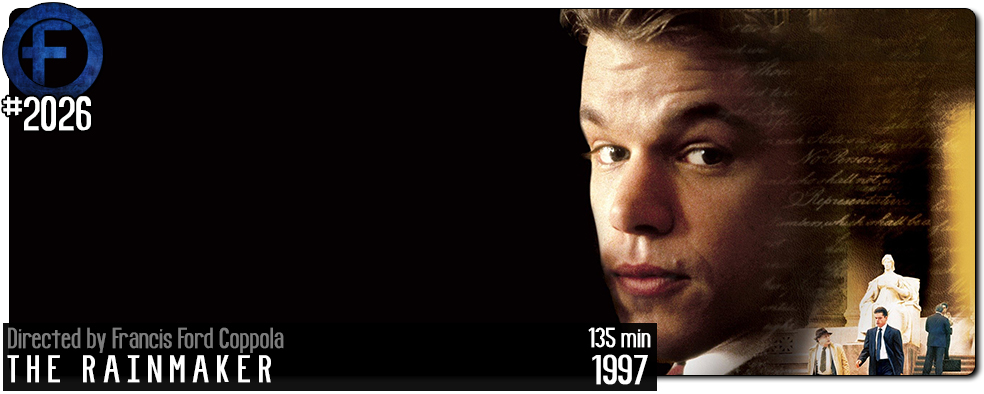Movie Review – Rainmaker, The (1997)
Principal Cast : Matt Damon, Danny DeVito, Claire Danes, Jon Voight, Mark Kay Place, Dean Stockwell, Teresa Wrights, Virginia Madsen, Mickey Rourke, Andrew Shue, Red West, Johnny Whitworth, Roy Scheider, Randy Travis, Danny Glover.
Synopsis: An underdog lawyer takes on a fraudulent insurance company.
********
Derived from yet another of ubiquitous author John Grisham’s best selling novels, Francis Ford Coppola’s film version of The Rainmaker sees rising star Matt Damon lead a decent ensemble cast in the placid, undemanding legal drama alongside Claire Danes and everyone’s favourite screen baddie, Jon Voight. I had absolutely no idea this film was directed by the same man who gave us The Godfather, mainly because The Rainmaker is so bland, so baking-soda pedestrian it rarely raises the pulse – this despite solid performances from the entire cast and a sense of injustice being clawed back to the lowly and lovely – and as much as I had a good time with it I’m inclined to suggest it should have been better.
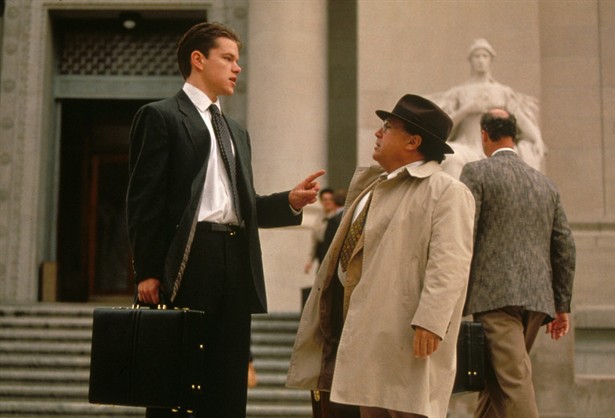
Memphis-based lawyer Rudy Baylor (Matt Damon) finds employment straight out of University at a local backyard ambulance chase firm run by the scabrous J Lyman “Bruiser” Stone (Mickey Rourke), and co-partnered with former insurance company employee (and law-school dropout Deck Shifflet (Danny DeVito). Rudy chases up his own leads to bring the firm money, landing a tragic case of a young man, Donny Ray Black (Johnny Whitworth), who is dying from advanced leukaemia, and whose medical insurance firm refuses to pay our on their policy. Rudy befriends the Black family, particularly Donny Ray’s mother Dot (Mary Kay Place), and decides to take on their case regardless of outcome. As he works the case, he also meets Kelly Riker (Claire Danes), a woman who suffers domestic violence at the baseball bat-end of her meathead husband Cliff (Andrew Shue), from whom Rudy exhorts the battered wife to file for divorce. The Black’s insurance company, Great Benefit, are represented by the powerful legal firm of Tinley Tritt, with lead lawyer Leo F Drummond (Jon Voight) and expert in defending against what he sees are “frivolous” claims. Thankfully, Rudy is somewhat assisted by new case judge Tyrone Kipler (Danny Glover, appearing uncredited) and the appearance of former Great Benefit claims processor Jackie Lemanczyk (Virginia Madsen), who form a solid prosecutorial attack on the giant insurance company to endeavour to gain recompense for Donny Ray’s life and legacy.
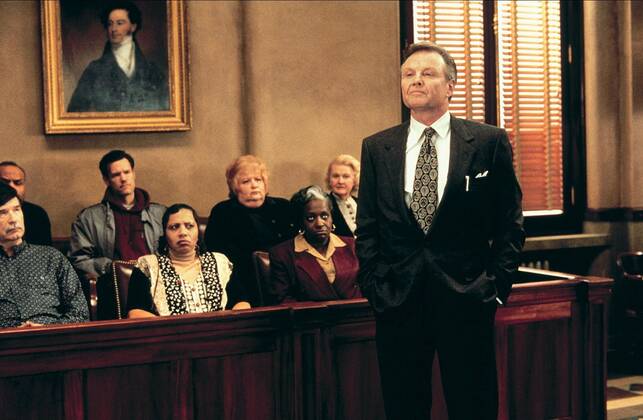
The 1990’s were a hotbed of big-screen legal thrillers and dramas – from Joel Schumacher’s A Time To Kill and The Client, Gregory Hoblit’s Primal Fear and Jonathan Demme’s Oscar-winning Philadelphia, and of course Rob Reiner’s military firebrand A Few Good Men, courtroom antics of that decade were both presciently torn-from-the-headlines and socially relevant, but also captivatingly performed despite their relatively dour settings. Courtrooms are afforded a preeminent place in American culture, largely I think because most Americans have spent a fair amount of time inside one at some point. Francis Ford Coppola’s The Rainmaker attempts to turn John Grisham’s generic legal drama into some kind of ensemble bolter, and ends up as a decently intriguing insurance battle (because who doesn’t hate bastard insurance companies!) lacking real bite, no matter how hard both Matt Damon and Jon Voight try to give it any.
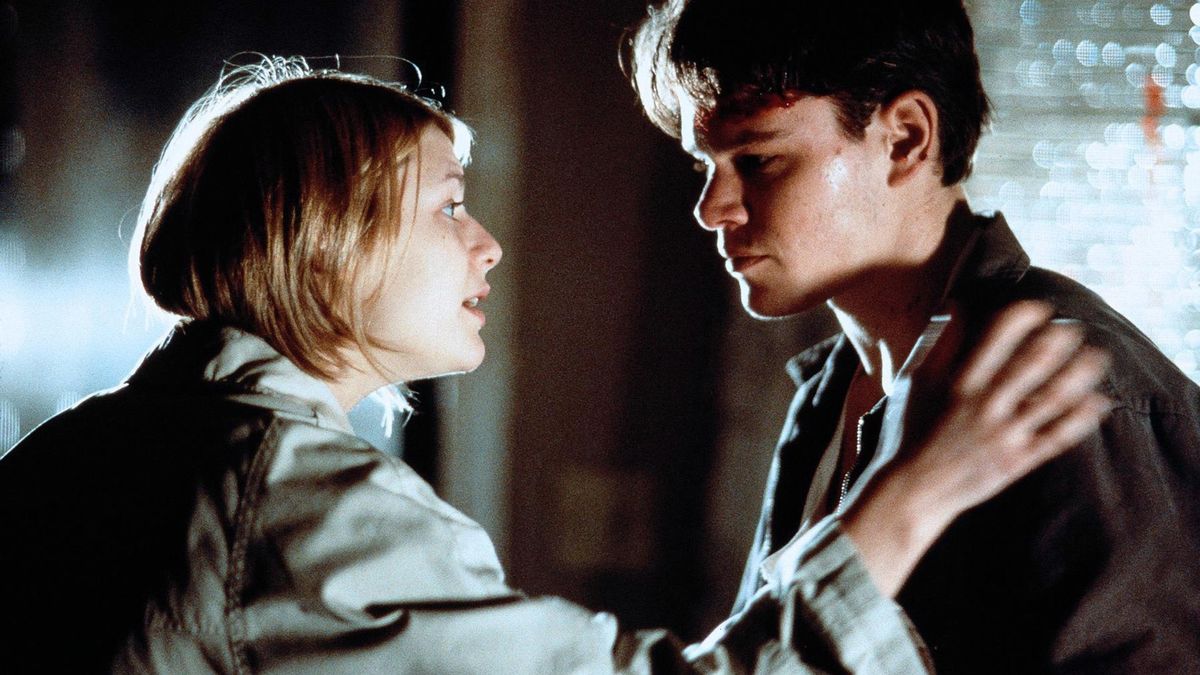
Coppola, who also wrote the screenplay, has proven himself to be a masterful storyteller, carving an award-winning career during the 70’s and 90’s with the likes of his Godfather trilogy, Apocalypse Now and Bram Stoker’s Dracula cementing themselves in a generation of filmgoers’ consciousnesses. The Rainmaker might come from a prestige filmmaker and white-hot populist novelist, and boast a hugely engaging ensemble cast doing their darndest, but for some reason it’s all for naught. Damon is as square-jawed Apple Pie as he can be as Rudy Baylor, the honest-to-goodness legal superhero on a path of sainthood, Jon Voight is his typically lip-licking Machiavellian self, whilst Claire Danes’ poor put-upon DV victim isn’t afforded the dramatic heft it ought when the sweet, sweet nectar of insurance fraud looms as a spectre across the movie, and the audience would be forgiven for half expecting some kind of grandiose gesture or climactic showdown to power through the mediocre tedium of the film’s scattered middle act.
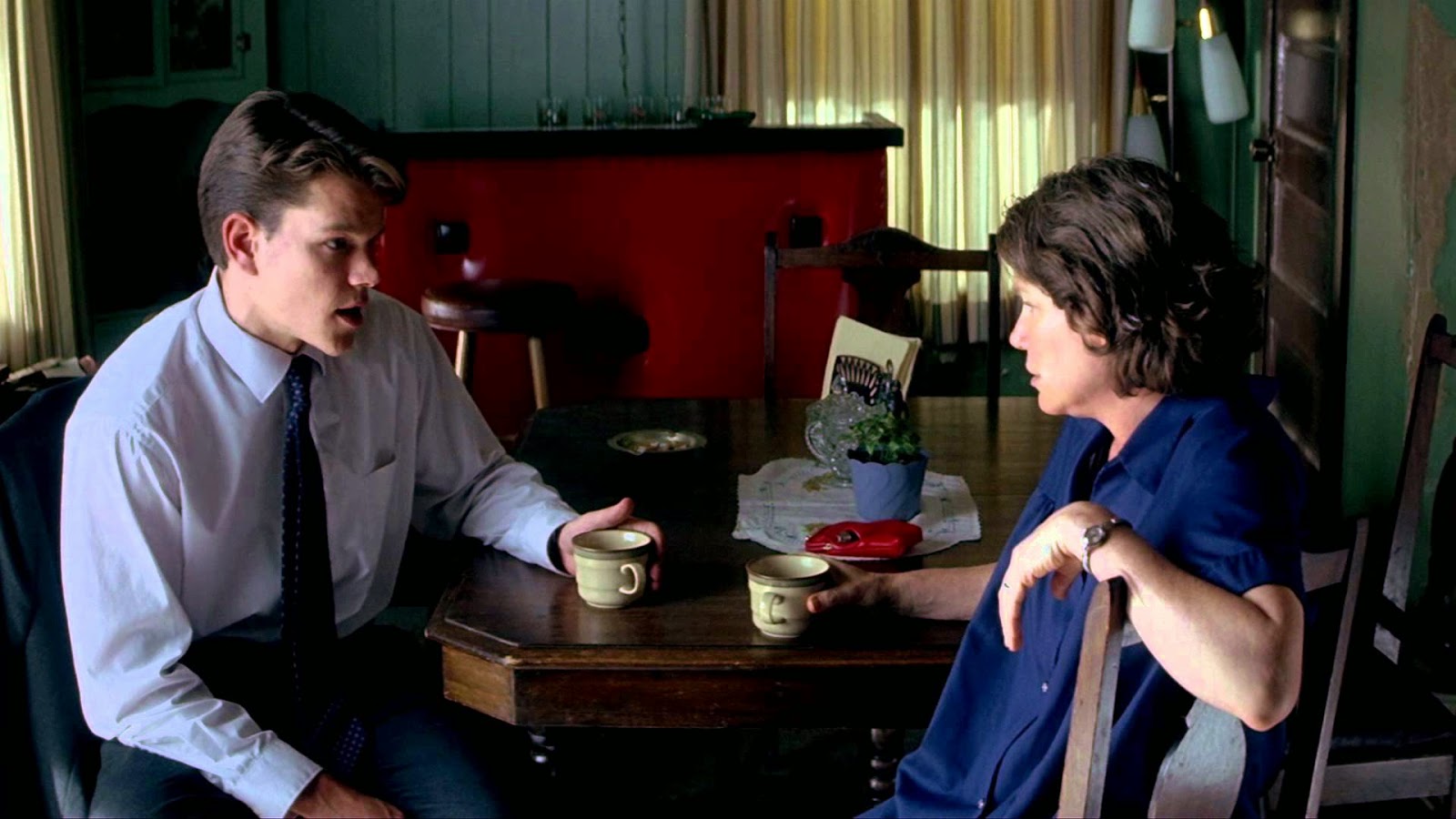
It never arrives: The Rainmaker’s unsatisfying dramatic weight is clumsily handled and misfires in the final act, despite routinely competent acting and direction; notably, Danny Glover’s gravel-voiced magistrate holds sway over the protracted courtroom sequence that, in keeping with every single other movie of its ilk, has to have several last moment twists and turns before the expected rousing climax – and the climax is rousing, of course, but largely empty of emotional truth. The plot unspools exactly as you might expect, delivers a lot of sweet character moments that offer very little catharsis, and meanders through rote scripting, easy-listening musical accompaniment and a bounty of contrivance as inescapably pedestrian as it is pristinely Old Hollywood Studio-esque. This feels like a film made by committee than a legitimate creative endeavour, particularly for a director as accomplished as Coppola, who offers naught but by-the-numbers director-for-hire storytelling visuals throughout. The good guys and bad guys are easily identifiable, there’s no moral grey areas, and as you would expect the outcome of the case (or at least the outcome for the insurance company at the centre of the plot) is right up there with other fist-pumping hell-yeah moments in cinema, albeit a lot quieter and circumspect than other films in the genre. This might qualify as the easiest job Coppola has ever directed.
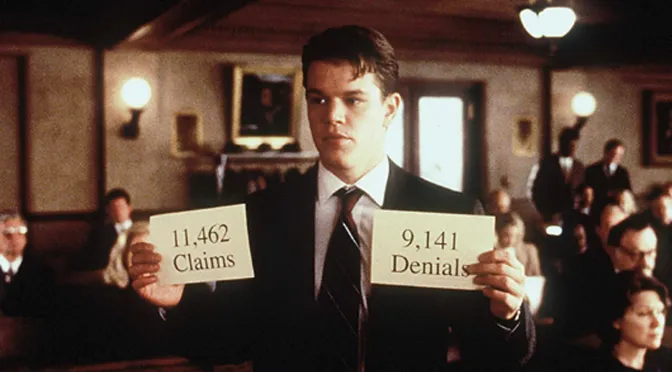
Don’t mistake my disdain for the film for it being a bad one, because The Rainmaker is competently written, well acted and generally well directed, but there’s something intangible missing from its aesthetic. It’s a mildly diverting film of immodest claim and generic plot devices, lacking any kind of freshness, strength of story or subtextual nuance. It’s the kind of film where it feels the need almost always to explain itself to the audience, dumbing down the subtlety of Grisham’s text to its most base, derivative form. I don’t mean this in a mean, dispiriting way, but rather in a manner predictably meandering, a carbon-copy of a lot of the subgenre’s hoary old tropes. I enjoyed The Rainmaker for what it was, but it’s hardly a keeper and definitely not one of the best of the genre. Worth a look for fans of Matt Damon (you know who you are, The Great Wall audience!) and restrained, cogent legal arguments, The Rainmaker makes for solidly undemanding rainy afternoon viewing.

